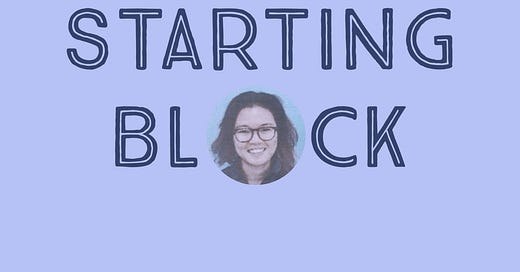LAST UPDATED: APRIL 24, 2023
In this master post, you will find essential media to learn more about data, disinformation, democracy and the digital media ecosystem.
TV, film and podcasts about new media and emerging technologies
Books, essays or reports by experts with insights on the above subjects
Online games on science literacy and media literacy
Courses and syllabi
TV, Films, Documentaries, and Podcasts
AlphaGo (2017) by Greg Kohs about Google’s computer programme that plays the board game Go.
Behind The Curve (2018) by Daniel J. Clark on the flat-Earth movement in the US.
The Great Hack (2019) by Karim Amer and Jehane Noujaim about the Cambridge Analytica scandal.
Merchant of Doubt (2014) by Robert Kenner featuring Naomi Oreskes, the author of the book of the same name (see below).
After Truth: Disinformation and the Cost of Fake News (2020) by Andrew Rossi and produced by CNN’s Brian Stelter, on how misinformation impacts the average citizen in the US.
Coded Bias (2020) by Shalini Kantayya about how Joy Buolamwini discovered racial bias in facial recognition.
Years and Years (2019), a BBC short series by Russell T. Davies about what the future would be like—with AI technologies, the climate crisis, and conspiracy theories.
Citations Needed (2017-present), a podcast hosted by Nima Shirazi and Adam Johnson, about the intersection of media, PR, and power.
CIGI’s Big Tech (2019-2022), a podcast by Taylor Owen about tech, society and democracy.
Conspirituality (2020-present) by Derek Beres, Matthew Remski, Julian Walker, and Mallory DeMille.
MIT Tech Review’s In Machines We Trust (2020-2022), a podcast hosted by Jennifer Strong that explores developments in AI.
Tech Won’t Save Us (2020-present) by Parix Marx.
Programmers, Hackers and Hacks (2020), a podcast mini-series on the people and practices behind our machines by ethnographer of digital cultures, Paula Bialski.
BFM’s Ring True (2019), a podcast mini-series hosted by Caroline Oh and produced by Tina Carmillia on misinformation in science news.
Books and Essays
Race After Technology: Abolitionist Tools for the New Jim Code (2019) by Ruha Benjamin
Artificial Unintelligence: How Computers Misunderstand the World (2018) by Meredith Broussard
Technically Wrong: Sexist Apps, Biased Algorithms, and Other Threats of Toxic Tech (2017) by Sara Wachter-Boettcher
The Fight for Privacy: Protecting Dignity, Identity, and Love in the Digital Age (2022) by Danielle Keats Citron
Merchants of Doubt: How a Handful of Scientists Obscured the Truth on Issues from Tobacco Smoke to Global Warming (2010) by Naomi Oreskes.
Calling Bullshit: The Art of Scepticism in a Data-Driven World (2020) by Carl T. Bergstrom and Jevin D. West.
True Enough: Learning to Live in a Post-Fact Society (2008) by Farhad Manjoo.
Hooked: How to Build Habit-Forming Products (2013) by Nir Eyal.
From Gutenberg to Zuckerberg: Disruptive Innovation in the Age of the Internet (2011) by John Naughton.
Everybody Lies: Big Data, New Data, and What the Internet Can Tell Us About Who We Really Are (2017) by Seth Stephens-Davidowitz.
Re-Engineering Humanity (2018) by Brett Frischmann and Evan Selinger.
In Defense of Troublemakers: The Power of Dissent in Life and Business (2018) by Charlan Nemeth.
Algorithms of Oppression: How Search Engines Reinforce Racism (2018) by Safiya Umoja Noble.
Hello World: Being Human in the Age of Algorithms (2019) by Hannah Fry.
Turned on: Science, Sex and Robots (2018) by Kate Devlin.
The Age of Surveillance Capitalism: The Fight for a Human Future at the New Frontier of Power (2018) by Shoshana Zuboff.
Weapons of Math Destruction: How Big Data Increases Inequality and Threatens Democracy (2016) by Cathy O’Neil.
The Fact Checker’s Bible (2004) by Sarah Harrison Smith.
Obfuscation: A User’s Guide for Privacy and Protest (2015) by Finn Brunton and Helen Nissenbaum.
Digital Dominance: The Power of Google, Amazon, Facebook, and Apple (2018) by Martin Moore and Damian Tambini.
Invisible Women: Exposing Data Bias in a World Designed for Men (2019) by Caroline Criado-Perez.
Broadcast Hysteria: Orson Welles’s War of the Worlds and the Art of Fake News (2015) by A. Brad Schwartz.
The Disappeared: Beyond Winning and Losing (2018) by Lynn Conway.
Crystallizing Public Opinion (1923) and Propaganda (1928) by Edward Bernays.
The Ethics of Ambiguity (1947) by Simone de Beauvoir.
A Mathematician’s Lament (2009) by Paul Lockhart.
Politics and the English Language (1946) and Why I Write (1946) by George Orwell.
Online and Mobile Games
Bad News by the University of Cambridge
Troll Factory by Yle
Go Viral! by the University of Cambridge
How We View History by The Pudding
Spot The Troll by Clemson University
Choose Your Own Fake News by Pollicy
Fake News Immunity Chatbot by Universities of Liverpool and Dundee
Harmony Square by the University of Cambridge
Detect Fakes by MIT
Fake It To Make It by Amanda Warner
Fakey by Indiana University
Which Face Is Real by the University of Washington
Fakes? No, thanks! by Demagog.pl
Cranky Uncle by John Cook of George Mason University
Moderator Mayhem by Techdirt
Trust and Safety Tycoon by Techdirt
Courses and Syllabi
Journalism, Fake News & Disinformation: Handbook for Journalism Education and Training (2018) by UNESCO
The Verification Handbook: A Definitive Guide to Verifying Digital Content for Emergency Coverage (2014) by Craig Silverman
Calling Bullshit: Data Reasoning in a Digital World by Carl T. Bergstrom and Jevin West at the University of Washington
Mediactive: How to Participate in Your Digital World by Arizona State University
Fact-Check It: Digital Tools to Verify Everything Online by Poynter
Hands-on Fact-checking: A Short Course by Poynter
Web Literacy for Student Fact-Checkers by Michael A. Caulfield




you gona update this some day?